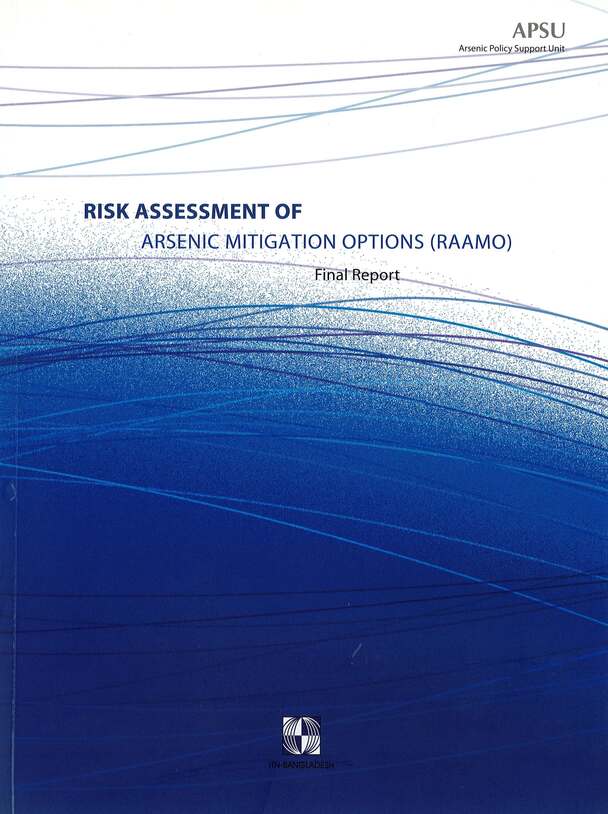Risk Assessment of Arsenic Mitigation Option
Publisher(s): Arsenic Policy Support Unit (APSU)

Category(s): Books & Proceedings
Language: English
Publication Year: 2005
Document Type: PDF
This book is the output of a risk assessment of arsenic mitigation options that was undertaken by ITN-BUET over a 12-month period with funding from the Arsenic Policy Support Unit (APSU). This study was meticulously designed and involved inputs from a number of national and international experts. This study is the first of its kind in a developing country and will support balanced decision making by water and health professionals engaged in arsenic mitigation.
The purpose of the risk assessment was to quantify the health risks associated with different arsenic mitigation options. In providing alternative water supplies, it is important to be aware that users may be exposed to other hazards such as pathogens. Risk substitution in arsenic mitigation should always be avoided and water should be provided that is safe with respect to all contaminants. This will ensure that the targets set out in the Poverty Reduction Strategy Paper (PRSP) and the Millennium Development Goals will be reached.
This study has developed a tool to allow the estimation of disease burden associated with pathogens and arsenic for each technology. This has been validated using the data collected in this study, but it is important that the tool should continue to be used. All organisations wishing to have support to analyse their water supplies should feel free to use this tool and to contact either APSU or ITN-BUET for advice and support. For sustainable arsenic mitigation, the technologies provided must be acceptable to the users. This study also included an assessment of social acceptability and this can be used to undertake an overall assessment of suitability using a triple-bottom line approach. Sustaining mitigation options also requires that support is given to communities so that they can undertake the routine operation and maintenance tasks required.
This risk assessment is part of a process to develop a water safety framework for Bangladesh. It provides support to defining health-based targets for water supply and in determining the major risks that must be addressed in a water safety plan. Water safety plans are already being implemented through water supply projects working with rural communities. The use of such plans linked to risk assessment will offer Bangladesh an effective system for ensuring safe drinking water is supplied to all rural communities.
Keywords
Arsenic,
Country
Bangladesh
Copyright
This is an open access work distributed under the terms of the Creative Commons Attribution License, which permits unrestricted use, distribution, and reproduction in any medium, provided the original work is properly cited.
No comment yet.